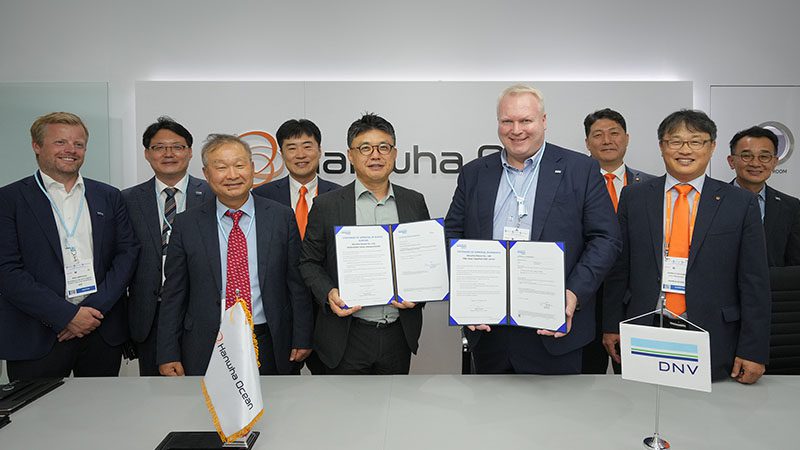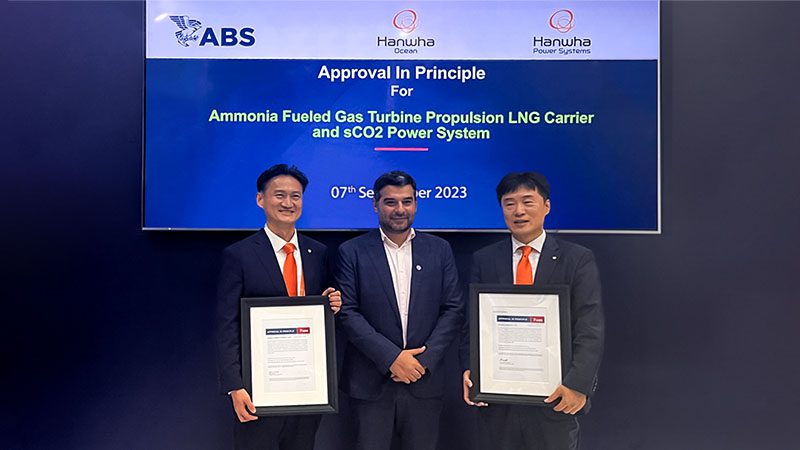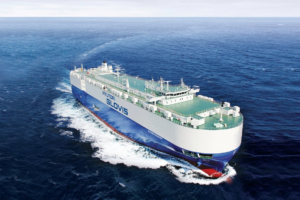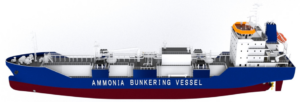
South Korean shipyard Hanwha Ocean obtained approvals in principle (AiP) for a new LCO2 carrier and a modern LNG carrier, at the Gastech 2023 Exhibition and Conference held in Singapore.
Norway’s Det Norske Veritas (DNV) awarded the company an Approval in Principle (AiP) for its 70,000 cubic meter (cbm) class liquefied carbon dioxide (LCO2) carrier cargo hold design.
This cargo hold, which features a vertical asymmetrical structure, maximizes the cargo capacity of LCO2 carriers, increasing it by 50% when compared to existing cylinder structures.
The company has also become the first Korean shipyard to receive an Approval of Service Suppliers (AOSS) for the measurement of underwater radiated noise (URN), considered a pollutant by the International Maritime Organization for its impact on aquatic organisms.
Hanwha also secured AiP’s from the American Bureau of Shipping for the world’s first large-scale carbon emission free liquified natural gas (LNG) carrier, and for Hanwha Power Systems’ sCO2 power system.
The certified LNG carrier is a 174,000 cbm vessel powered by an ammonia-fueled gas turbine.

The turbine design incorporates Hanwha Power Systems’ sCO2 power system. This exhaust gas waste heat recovery system reduces NOx emissions to a level that satisfies IMO’s stringent regulations without the installation of a selective catalytic reduction (SCR)⁴ system and has a significantly reduced methane slip.
It’s worth noting that Hanwha Ocean plans to invest approximately $450 million to develop an eco-friendly propulsion system based on ammonia, methanol, and hydrogen.
The company will also expand its portfolio to encompass carriers designed to transport ammonia, carbon dioxide, and hydrogen.
Furthermore, by 2030, the company plans to secure smart ship technology capable of fully autonomous navigation.


